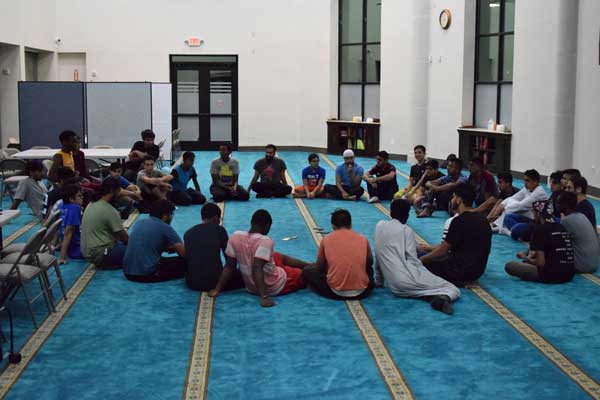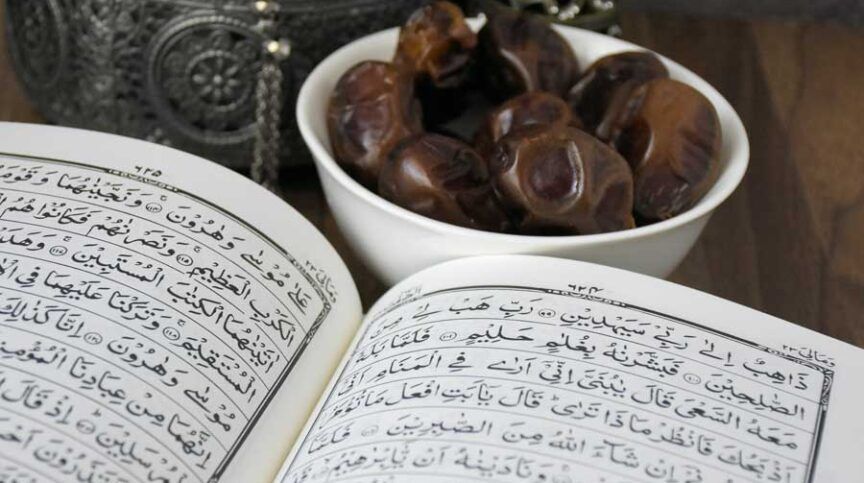As Muslims, our faith is not complete if we do not hold the Prophet, peace be upon him, dearer to ourselves than our own selves, our parents, or anyone else. And when such a person who is so close to our hearts is insulted, it will naturally give rise to anger. Would we not feel angry if someone abused our mother in front of us, or tried to harm our child in our presence? If we felt no defensive or anger in such a situation, our sanity and love towards our close kin would be undoubtedly questioned!
We need to take a deep breath, and despite the deep ache in our hearts, our raging emotions, and our desire to lash out against the perpetrators, we need to keep cool and collected and ponder about how to unify our efforts in order to react in a manner that will bring about a win-win situation for the entire world
Therefore, the anger we feel when our Prophet is insulted or derided in any way is actually praiseworthy, so much so that any Muslim who does not feel this anger well up inside him or her when the Prophet is mocked, needs to check his faith and his loyalty to God’s faith. Therefore, I would just like to make something very clear: Vile insults towards Prophet Muhammad should result in a Muslim getting angry for the sake of God; however, this anger should not cause him or her to commit foolish, irrational, reactive, sinful, vandalistic, or destructive acts.
Muslims should openly, verbally, and publicly condemn the vile actions meted out in bad taste against their religion and their Prophet, but the manner of this condemnation should be well-worded, civilized, non-violent, non-provocative, non-accusatory, and carefully planned out in advance. Muslims should peacefully and via proper legal procedures, attempt to contact those in authority to urge them to bring the perpetrators of this gross disrespect to the Prophet to justice, because deliberately dishonoring any respectable person is a sinful action which should be repudiated.
Defending the Prophet: Direct & Practical Ways
There were times in the Prophet’s life that some of his opponents tried to inflict emotional and physical harm upon him. At such times, his companions always rose to defend him selflessly. The Prophet never stopped them from raising their tongues or hands to defend him, except when they crossed limits. Some of the enemies of the Prophet would compose and publicly recite offensive verses of poetry deriding and ridiculing him. In retaliation, the Prophet allowed one of his companions to retaliate in like manner. Not just that, but he supplicated God to aid the companion in his efforts. Narrated Aisha: “Once Hassan ibn Thabit asked the permission of the Prophet to expose and denounce the infidels through verse. The Prophet said, ‘What about the fact that I have common descent with them? ‘Hassan replied, ‘I shall take you out of them as a hair is taken out of dough’” (Al-Bukhari).
Muslims should openly, verbally, and publicly condemn the vile actions meted out in bad taste against their religion and their Prophet, but the manner of this condemnation should be well-worded, civilized, non-violent, non-provocative, non-accusatory, and carefully planned out in advance
At a turning point in the history of Islam, when the treaty of Hudaibiyah was about to be drawn up, and the Prophet and his companions were coming to Makkah in the state of ihram, Urwa ibn Mas’ud came to talk to the Prophet. During his conversation, he said that the Prophet had with him companions who would desert him and abandon his cause. At that point, Abu Bakr, who was standing nearby, rebuked Urwa using a colloquial expletive common among the Arabs at that time. The Prophet did not reprimand him for doing so, even though they were all in the state of ihram.
During the same conversation, Urwa would sometimes extend his hand to grab the beard of the Prophet while talking to him. Each time, the companion Al Mughirah ibn Shu’bah, who was standing nearby, would hit Urwa’s hand with his sheathed sword and say to him: “Remove your hand from the beard of Allah’s messenger! “The hadith goes on to quote how Urwa perceived the loyalty of the Prophet’s companions: “…Urwa returned to his people and said, ‘O people! By Allah, I have been to the kings and to Caesar, Khosrau and Al Negus, yet I have never seen any of them respected by his courtiers as much as Muhammad is respected by his companions. By Allah, if he spat, the spittle would fall in the hand of one of them, who would rub it on his face and skin; if he ordered them, they would carry out his order immediately; if he performed ablution, they would struggle to take the remaining water; and when they spoke, they would lower their voices and would not look at his face constantly out of respect’” (Al-Bukhari).
It is obvious from the above narrations that, while we, as Muslims, should definitely take the “higher road” when it comes to reacting to provocative incidents in which mud is slung upon our Prophet, we should nevertheless feel anger and defensiveness in our hearts that drives us to protect the Prophet’s honor, just the way his companions felt when they protected him from all sides, and responded to any kind of verbal or physical attack.
Staying within Limits
In our readiness to defend the Prophet, we must make sure to stay within proper limits. Once the Prophet’s wife Aisha, being young and devoted the Prophet both as the Messenger of Allah and as her husband, overstepped bounds while returning the vile greeting of a group of Jews who greeted the Prophet in her presence. They pretended to invoke peace upon him but actually wished death upon him by using a twist of the tongue to distort the Arabic word “salaam. “Narrated Ibn Abi Mulaika: Aisha said, “The Jews came to the Prophet and said to him, ‘As-Saamu ‘Alaika (i.e. ‘death be upon you’).’ He replied, ‘The same on you.’ Aisha said to them, ‘Death be upon you, and may Allah curse you and shower His wrath upon you!’ Allah’s messenger said, ‘Be gentle, O Aisha! Be gentle and beware of being harsh and of saying evil things. ’She said, ‘Didn’t you hear what they said?’He said, ‘Didn’t you hear what I replied (to them)?’” (Al-Bukhari).
The Prophet clearly reprimanded Aisha and urged her to adopt “rifq,” which when translated from Arabic, means, “gentle, soft, tender, gracious, courteous, and civil.”However, he also pointed out to Aisha that he had returned their greeting, even though he could have chosen to ignore it.
What Should We Do?
There are many things Muslims the world over can do to combat any instance of insult against the Prophet. First of all, we need to take a deep breath, and despite the deep ache in our hearts, our raging emotions, and our desire to lash out against the perpetrators, we need to keep cool and collected and ponder about how to unify our efforts in order to react in a manner that will bring about a win-win situation for the entire world. Here are a few tips about what to do in this situation:
- Pray to God sincerely to enable us to stage a reaction to any provocation that is completely in accordance with His pleasure.
- Write columns, blog posts, status updates on social media protesting peacefully against the offense.
- Share online links to articles penned by learned scholars and wisdom-preaching imams which elaborate and promote the correct way of reacting to fitnah.
- Get our complaints heard by contacting the higher-ups and authority figures, such as righteous government leaders, unbiased politicians, and sincere journalists.
- Participate in peaceful online and in-person protests with banners and slogans to get the message of peace across globally.
- Commit our daily lives to emulating the beautiful character of Prophet Muhammad in all ways, in private and in public.
- Look for opportunities to speak and write about Prophet Muhammad’s excellent character, in particular about the numerous times he overlooked evil actions directed towards him, and how he repeatedly forgave and pardoned his enemies.
- Denounce destructive rallies, protests, and death-and injury-inflicting, property-damaging and conflict-deepening clashes, hooliganism, vandalism, and violence that are carried out by Muslims and others around the world. Condemn such behavior as not being in accordance with the way of Prophet Muhammad and his noble companions.
Practice Farsightedness
When 9/11 happened; the world was outraged and shocked. In the short-term, the image of Muslims and Islam appeared to suffer a grave misrepresentation. However, over the years, awareness about Islam increased and interest grew. More and more people who had previously known nothing about Islam started purchasing copies of the Quran and its translation, as well as reading other Islamic books and articles about God, Islam, and Prophet Muhammad.
It is not just my hope but also my earnest dua’ that God convert every instance of insult, mockery, or slander against Islam and its noble Prophet into a massive, international “PR campaign “for our religion and our Prophet. This positive and enlightening campaign of truthful information can defeat the propaganda and misinformation; it can spread the light of Islam and knowledge of the beautiful conduct of its Prophet to every corner of the globe. Let us make dua’ that this guidance towards the Truth enters every heart that wonders, “So who was this Muhammad? And what was he really like?”





